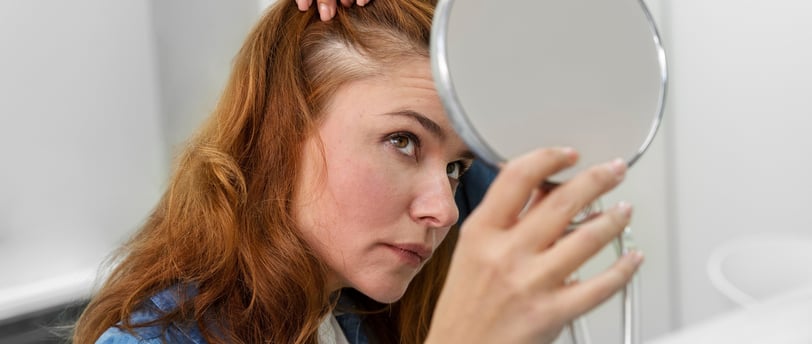Can Hair Grow Back Once Lost Due to Genetics? Debunking the Myth


Many people who experience hair loss due to genetics often wonder if it is possible for their hair to grow back. It is a common misconception that once hair is lost, it cannot be regained. However, the truth is that there are various treatments and solutions available that can help stimulate hair growth and restore lost hair.
Before delving into the different ways to encourage hair regrowth, it is essential to understand the underlying causes of hair loss. Genetics can play a significant role in determining whether an individual will experience hair loss or not. Male pattern baldness, for example, is a hereditary condition that affects millions of men worldwide. Similarly, female pattern hair loss can also be influenced by genetic factors.
While it may seem discouraging to know that genetics can contribute to hair loss, it is important to note that there are still options available for regrowth. Here are a few methods that have shown promising results:
Medications: Prescription medications such as minoxidil and finasteride have been approved by the FDA for treating hair loss. These medications work by stimulating hair follicles, promoting growth, and preventing further hair loss.
Low-Level Laser Therapy (LLLT): LLLT is a non-invasive treatment that uses red light therapy to stimulate hair follicles, increase blood flow, and promote hair growth. This therapy can be done at home or in a clinical setting.
Hair Transplantation: Hair transplantation is a surgical procedure that involves taking hair follicles from one part of the body (usually the back of the head) and transplanting them to the areas with thinning or no hair. This procedure has shown excellent results in restoring hair.
Platelet-Rich Plasma (PRP) Therapy: PRP therapy involves injecting the patient's own platelet-rich plasma into the scalp to stimulate hair growth. The growth factors present in the plasma help nourish the hair follicles and promote regrowth.
It is important to note that the effectiveness of these treatments may vary from person to person. Consulting with a dermatologist or hair specialist is crucial to determine the most suitable treatment option based on individual needs and circumstances.
Furthermore, it is essential to maintain a healthy lifestyle to support hair regrowth. A balanced diet rich in vitamins and minerals, regular exercise, and stress management can all contribute to the overall health of the hair and scalp.
In conclusion, while hair loss due to genetics can be disheartening, it is not a permanent condition. With advancements in medical technology and various treatment options available, it is possible to stimulate hair regrowth and restore lost hair. Consulting with a professional and exploring different treatment methods can help individuals regain their confidence and achieve a fuller head of hair.
References: - American Academy of Dermatology Association. (n.d.). Hair Loss: Diagnosis, Treatment, and Outcome. Retrieved from https://www.aad.org/public/diseases/hair-loss/diagnosis-treatment - Mayo Clinic. (2021, February 23). Hair loss. Retrieved from https://www.mayoclinic.org/diseases-conditions/hair-loss/symptoms-causes/syc-20372926
Legal
Quick links
Certifications
4059, Lane No. 6, New Madhopuri
Ludhiana(LDH)- 141007
+919877351195
Care@herbmine.in


